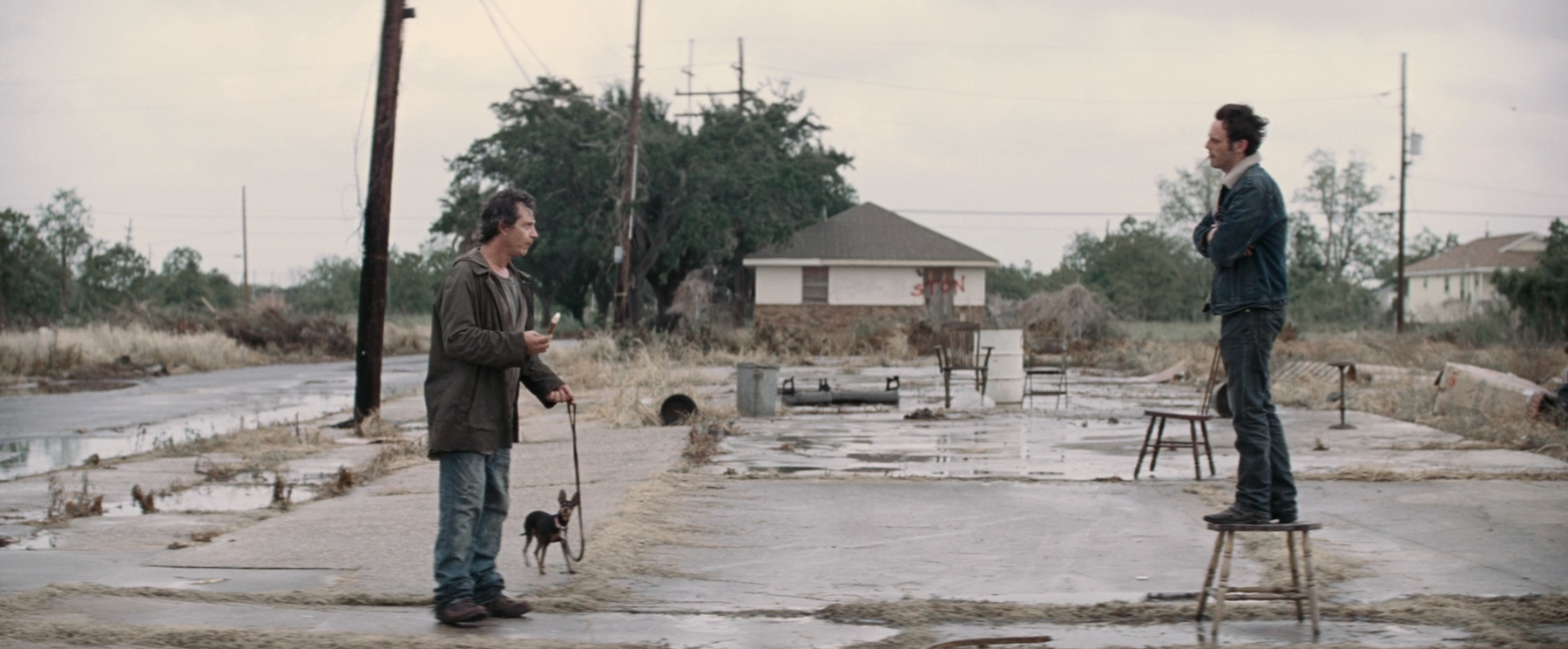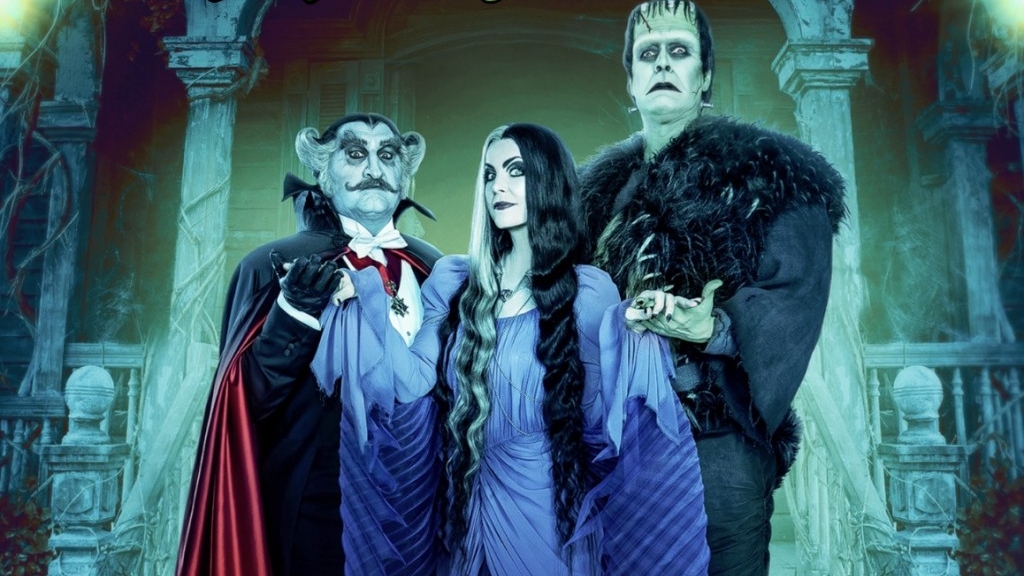
With Blonde hitting Netflix this week, it’s hard to believe that it’s been almost ten years since the release of director Andrew Dominik’s last (non-doc) feature, Killing Them Softly. Dominik’s nasty little f*ck you of a crime movie, starring Brad Pitt and James Gandolfini, opened November 30th, and almost instantly joined some rarified company: it’s one of only 21 movies ever to get an “F” grade from the audience polling company Cinemascore. (Even Olivia Wilde’s anti-crowdpleaser, Don’t Worry Darling, received a comparatively modest B-).
I admit, the idea of a movie being hated by the hordes of soda-fattened mall people that presumably make up most of Cinemascore’s polling base only really serves to make it more appealing to me. Even if I must admit that most of those other 21 movies weren’t ahead of their time, artistically challenging, or transgressive, they were mostly just plain ill-conceived and bad (Fear Dot Com, Seltzer and Friedberg’s Disaster Movie, Lindsay Lohan’s I Know Who Killed Me, etc.).
Yet Killing Them Softly is the kind of movie seemingly designed to piss off squares, and did. It was contrarian, transgressive, and yes, ahead of its time. It was cynical, certainly, but also prescient, and maybe with the benefit of hindsight, the miracle that it ever got greenlit, produced, and released when it did only becomes more clear. It doesn’t feel like it should be ten years old. Consider some of the other movies released that year: The Avengers (the first one), Men In Black 3, Flight. They all feel distinctly like time capsules from a bygone era. Killing Them Softly doesn’t, perhaps partly because it felt like it came from another time in its own time.
Released barely three weeks after Obama’s fairly decisive reelection, this was a movie that had the audacity to conclude with its lead character openly sneering at Obama’s first inauguration speech, this before he’d even made his second.
“This guy wants to tell me we’re living in a community? Don’t make me laugh,” Brad Pitt’s Jackie practically spits at syndicate functionary Richard Jenkins, while Obama’s speech drones from the TV above the bar. “I’m living in America. And in America, you’re on your own. America’s not a country. It’s just a business.”
That’s the final shot of the movie, cutting to black with a needle drop to the original version of “Money (That’s What I Want)” by Barrett Strong.
Coming as it did in the wake of the financial crisis and an escalating drone war, 2012 may not exactly have been an era of good feelings, certainly as compared to 2008, when many of us thought this suave eloquent coolguy was going to end the wars, shutter Guantanamo, cancel the Patriot Act and generally bring about a golden age of reasoned meritocracy. We were mostly disabused of these notions by 2012, but it takes a long time to get a movie made, and not many people had soured on the Obama era quickly enough to get something as disdainful of it as Killing Them Softly into theaters less than four years later.
Killing Them Softly is a movie as much about the financial crisis as Too Big To Fail, the latter a classic of the “smart guys in a room making tough decisions” variety, in which Billy Crudup played Tim Geithner. Killing Them Softly is sort of the anti-Too Big To Fail, a movie about individuals — petty, confused, scared — being crushed by a crisis of their own.
It all starts when small-time gangster “The Squirrel,” played by wildly underrated Sopranos alum Vincent Curatola (aka Johnny Sack) decides he wants to rob a mob-controlled card game. He thinks he can get away with it because the guy who runs the card game, Markie Trattman (Ray Liotta), recently admitted to having set up the robbery of his own game once before. If it happens again, The Squirrel figures, everyone will naturally blame Markie, and he needs to get it done before someone else gets the same idea. To pull it off, The Squirrel hires a flea-bitten ex-con named Frankie, played by Scoot McNairy, who in turn pulls in an even more flea-bitten sweaty Australian junkie named Russell. Russell is played by Ben Mendelsohn, in a masterpiece of scumminess that in a just world would’ve won him an Oscar. Even the name, “Russell,” feels like it was perfectly designed to be slurred through by Ben Mendelsohn with his signature mushy consonants.
Frankie and Russell pulling the heist is somehow both terrifying and hilarious, executed with nylon masks, yellow rubber dishwashing gloves, and a shotgun sawed off so short you can see the ends of the shells in it. A lesser director probably would’ve made the scene a classic comedy of errors, playing up the bickering and wisecracking, but Dominik doesn’t let you forget the life-and-death stakes. When Ray Liotta’s character tries to talk Ben Mendelsohn’s character out of taking the money, telling him he can still walk away from this, you can tell Russell is actually considering it.
He doesn’t though, and in the aftermath of the robbery, “The Syndicate,” represented by a deliberately boring middle manager played by Richard Jenkins, has to do something to restore the public confidence and get the card games going again. Metaphor alert!
To do this, they bring in Jackie, a smooth but ruthless killer who seems to know humans better than anyone else, because he sees them through unromantic eyes. Played by Brad Pitt with pompadour and a circle beard, Jackie is a bit like The Wolf from Pulp Fiction meets Johnny Cash (one of Jackie’s musical cues is Cash’s 2002 song “When The Man Comes Around”). As Andrew Dominik told Collider of Pitt’s casting, “You obviously can’t cast Brad as an everyman because he brings too much baggage to something like that. But if he’s playing a mythological character or somebody exceptional, then that baggage is a good thing.”
Pitt’s character, this part human, part mythological force, naturally gets to deliver the film’s title line: You ever killed anyone? It can get… touchy-feely. Emotional, not fun, a lot of fuss. They cry, they plead, they beg. They piss themselves, they call for their mothers. It gets embarrassing. I like to kill them softly, from a distance. Not close enough for feelings. I don’t like feelings.
We always claim we don’t want films that glorify violence, films that make being a gangster seem like a lot of fun, which so many do, intentionally or not. Killing Them Softly is the rare film about the underworld where the message, that criminality and violence are almost or equally as unfun as a square job, really lands. The unpleasantness was fully intended.
As Andrew Dominik told Collider at the time, “There was a real work-a-day aspect to it, with this idea that crime is a drag. …Everything is a drag for these characters. One of the key things going on in the movie is this idea that people are doing everything they can to avoid violence or avoid getting their hands dirty, and I wanted you to be able to really understand why. Obviously, the way to do that is to make violence really unappealing. It always surprises me in films that killers seem so gleeful about killing people. I imagine that in a closed, hermetic society like the mob, where everybody knows each other, it must be really, really unpleasant to have to kill people.”
Like Blonde — based on a 2000 Joyce Carol Oates novel; not a traditional biopic — Killing Them Softly was an attempt to create a timely film out of relatively obscure source material. Dominik was adapting Cogan’s Trade (1974), by Boston crime novelist George V. Higgins, whose only other book to be adapted into a movie was Friends Of Eddie Coyle (1973) (which, incidentally, Anthony Bourdain once listed as his favorite movie). The idea for the movie was to use the underworld plot of the seventies book as a metaphor for the 2008 financial crisis — which Dominik turned into a backdrop mostly by having a lot of TVs and radios blare the news of late 2008. It certainly wasn’t the most subtle device.
“I’ve gotten a lot of shit for all the political stuff in the background of this film,” Dominik told Indiewire in 2012. “But as I remember that time, you couldn’t turn on the TV or turn on the radio and not hear about the bailout.”
Where the book was set in Boston, Killing Them Softly takes place in a sort of composite symbol of crumbling empire, combining Boston, where it was originally set (Scoot McNairy’s character has a Boston accent and references Boston suburbs like Somerville), Detroit, the go-to poster child for a decimated manufacturing sector, where Dominik initially wanted to shoot, and New Orleans, where it was actually shot, on account of Detroit being too cold. The effect is a bit jarring, with Scoot McNairy and Ben Mendelsohn walking through a parched landscape of dusty tumbleweeds in one scene, and most of the rest of the movie taking place in the pouring rain.
Though it was initially considered a flop (“bombs,” “flops,” “flunks,” “gets slaughtered,” “…lands with a thud,” went some of the headlines that Sunday and Monday morning), Killing Them Softly eventually did earn back its production budget. And critics rated it a little better than audience polls. To say that its dark tone and overwhelming cynicism were the reason it wasn’t more well-liked might be a little reductive, given that most critics, both haters and admirers alike, knocked Killing Them Softly less for its cynicism than for its simplicity. They generally thought it was a little heavy-handed, a little too on the nose. Richard Roeper wrote that it “collapses under the weight of the director’s crushing narcissism.”
Virtually none of them missed the central idea, that Killing Them Softly was an allegory for the financial crisis. Because you really couldn’t. Likewise, Brad Pitt’s character in Killing Them Softly surely wasn’t the first person ever to point out, as he does just before the “America is a business” kicker, that slave owner Thomas Jefferson might’ve been a little hypocritical with that whole “all men are created equal” deal.
I can’t argue that Killing Them Softly isn’t about as subtle as a sledgehammer (“the anvils of obviousness rain down,” as Cary Darling wrote in the Fort Worth Star-Telegram) but there’s a kind of conceptual purity that comes from an artist being straightforward, from meticulously telegraphing everything they’re doing. For his part, Dominik calls Killing Them Softly “almost like a political cartoon.” Ben Mendelsohn walking a tiny dog through a neighborhood of abandoned houses while he and Scoot McNairy argue about doing crimes especially feels like it could be a New Yorker cartoon.

Dominik also took the step of largely ignoring the old “show don’t tell” adage, letting the actors talk and shooting them in relatively long takes. “What attracted me to it was, essentially, the dialogue,” Dominik said. “These were a bunch of really verbose people that had a lot to say about their lives and about the world that they lived in, and I really liked all that stuff.”
The effect is that a cast of incredible actors all really got to act. Aside from Mendelsohn’s sweatiest, and arguably greatest performance, there’s Ray Liotta’s nuanced turn as the small-time gangster who knows he’s doomed from the moment the two idiots in nylon masks walk into his card game and spends the rest of the movie trying to talk his way out of it. Released just a year before his death, James Gandolfini shows up as a hitman brought in by Brad Pitt’s character (who was himself brought in by Dillon, played by Sam Shepard in a brief flashback). Gandolfini’s character, Mickey, is a haunted alcoholic hitman, seemingly on a suicide mission.
If Ben Mendelsohn’s character was gross, Mickey manages to be even grosser, holing himself up in a hotel room, abusing waiters and hookers alike, and reminiscing about hookers past. He eventually reveals that he can’t even perform the seemingly simple task for which he’s been hired, essentially crumbling before our very eyes. In a scene where his character is uncontrollably rambling, Gandolfini does most of the acting with his eyes. If Mendelsohn is a scumbag played for comic relief, Gandolfini is a scumbag played for pathos, and his final scene hits like a freight train. It stands out as some of the best acting Gandolfini ever did, even with some stiff competition.
Killing Them Softly is a little hard to love for good reason; it doesn’t let you leave the theater feeling good. We’re conditioned, to a certain extent, to expect the old Aaron Sorkin model, of movies about smart, courageous adults who solve complicated problems while delivering soaring speeches. In Killing Them Softly, no one solves problems. They just deal, jockey for position, and adapt.
Even Brad Pitt’s character, the partly mythological Man in Black, who so often functions as the voice of reason (counseling Richard Jenkins to just kill Trattman and save him the pain and indignity of all the beatings, for instance) in the end gets things just as wrong as everybody else. Bringing Mickey into town turns out to be a total bust (“I needed the Mickey of a few years ago, not this guy,”), and when he eventually cleans up everyone’s mess, all he gets for his troubles is to be second-guessed by a mealy-mouthed bureaucrat and forced to take a lower price. Pitt’s last line of the film, to Richard Jenkins’ character, is “fuck you, pay me.”
The film leaves it ambiguous as to whether Jackie actually did get paid. My theory is that he didn’t. He left unfulfilled, like everyone else, and his tough guy words were essentially wind, just like Obama’s, the impotent rationalizations of a man who had just lost his leverage, the only thing that matters. And that’s the end of the movie; no hugging, no learning. Cut to black, cue the credits song.
Is it too simplistic? Painfully unsubtle? Sure. But there’s power in a certain kind of obviousness, expressing basic emotional truths without weighing them down with qualifiers and caveats. I remember Rage Against The Machine seeming simplistic once, what with that band name and Zack De La Rocha screaming “some of those that work forces are the same that burn crosses.”
But the more time that passes and the more times the basic truth of it is proven true, the happier I am that he didn’t equivocate.
‘Killing The Softly’ streams for free for Starz subscribers and can be rented for $3.99 via Prime and Apple.




 (@Perdiixen)
(@Perdiixen) 
 (@destinyrmakeup)
(@destinyrmakeup) 

 (@Commieboi19)
(@Commieboi19) 
 (@kadoriajanae)
(@kadoriajanae) 







